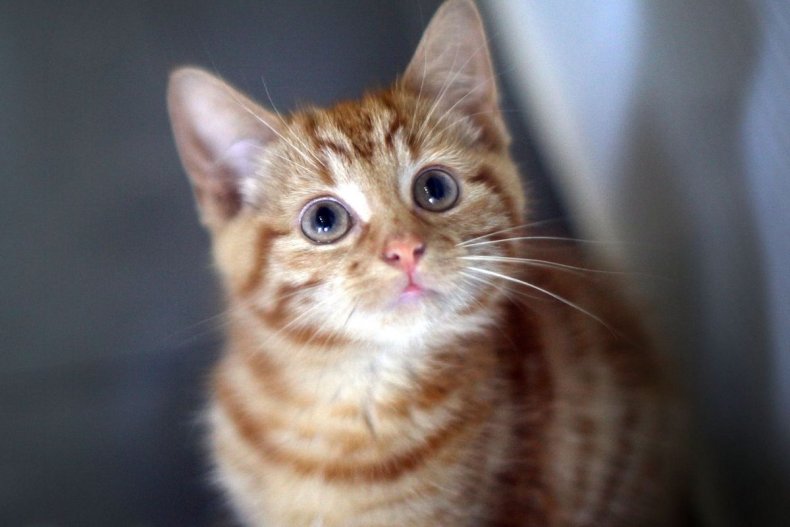When Do Cats Stop Growing? Tips On How To Care For Your Kittens
To best care for your cats, you need to understand the stages they go through as they grow from a kitten to a fully-grown cat. Every cat is different, and some breeds grow at different rates and for different lengths of time than others.
Here are some top tips on how to care for your growing cat, and when to expect them to reach their full potential.
When Do Cats Stop Growing?
This time varies from cat to cat, and more specifically from breed to breed. However, in general, owners can expect their cats to stop growing from 12 months to 18 months.
Speaking to PetMD.com, Dr. Nicole Fulcher, assistant director of the Animal Medical Center of Mid-America, said: "Kittens usually stop growing at approximately 12 months of age.
"A 12-month-old kitten is equivalent to a 15-year-old person. They are considered full-grown at 18 months of age—which is equivalent to a 21-year-old person."
For some cats which continue to grow after 12 months, the rate of growth after this point is much slower.
As a result, even if cats continue to grow for a short time after 12 months, this will not be a great change.
Some breeds, however, can take a little longer to stop growing, as Pumpkin Pet Insurance notes.
Maine Coon cats or Ragdoll cats, for example, can continue growing until they are four or five years of age, which is mainly due to their facial roundness lengthening, which will make them look closer to an adult cat.
At about two years old, most cats are considered to be in the adult stage, meaning their growth would have stopped completely.
Important Milestones for Growing Cats
It is important to understand your cat's growth cycle in order to best care for a cat at different points.
From months three to four, their baby teeth will fall out and be replaced by adult teeth, a process which is usually finished by six months, according to PetMD.
Kittens will then go through sexual maturation from four to nine months, during which some may consider spaying or neutering their male cats.
A kitten is almost fully grown by nine to 12 months, before they are considered mature and entering their prime stage at two years old.
According to Pumpkin, from about 7-10 years of age, the cat is fully matured and may begin a little growth in the tummy area, which can be aided by gentle exercise.
Cats enter their senior stage at age 11, at which point some age-related issues can arise, and by 15, cats will have entered the geriatric stage, where they may suffer from tooth-loss and will be much less active.
How To Care For Growing Kittens
According to U.K. charity Royal Society of Prevention of Cruelty to Animals (RSPCA) many things need to be taken into account when caring for kittens, including feeding, appropriate hygiene, grooming, socialising, litter box training and maintaining a suitable environment for cats to live.
Before bringing a young kitten home, it will need to be vaccinated and trained to use a litter box, as well as socialized by introducing the kitten to people and new environments.
It is important to also prepare your home such as providing toys, space for kittens to move around in, removing hazards and even bringing a blanket from your kitten's first home to help it acclimatize.
Pet owners must also make sure they consult a vet and get pet insurance to ensure their cat has suitable professional care when needed.
In the early stages of a kitten's life, from eight to 12 weeks, they need small, regular meals, using similar or the same food to that which they previously ate in their former home.
They will also need to be introduced to other animals, people, environments such as cat carriers, as well as regular practices like undergoing grooming and health check-ups.
It is also good at this point to create boundaries and routines for cats to follow, to help them understand good and bad behavior.
From the 12-week period, owners should enquire with their vets about spaying and neutering, as well as worming if required.
It is also important to play with your kitten, and continue to establish routines through kitten training, so they can come to you when you call.
As growing is tiring, it is also important to let kittens rest and recharge after training sessions.
From six months, kittens are still learning, so continue to establish routines and build positive experiences for your cat.
At this point, cats may be needing to move onto a different diet, as by a year they will likely have stopped growing.
PetMD suggests moving cats onto adult cat food from one year, however ask for specific advice from your vet based on your cat's needs.


